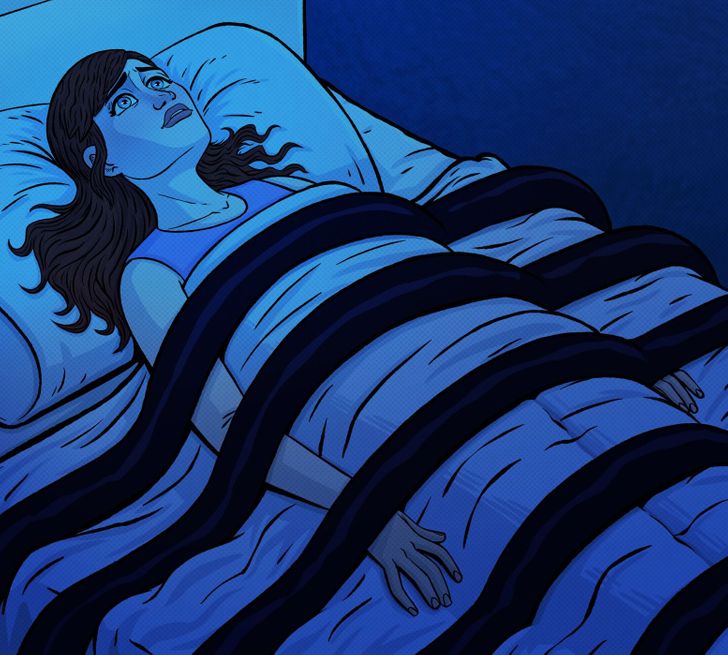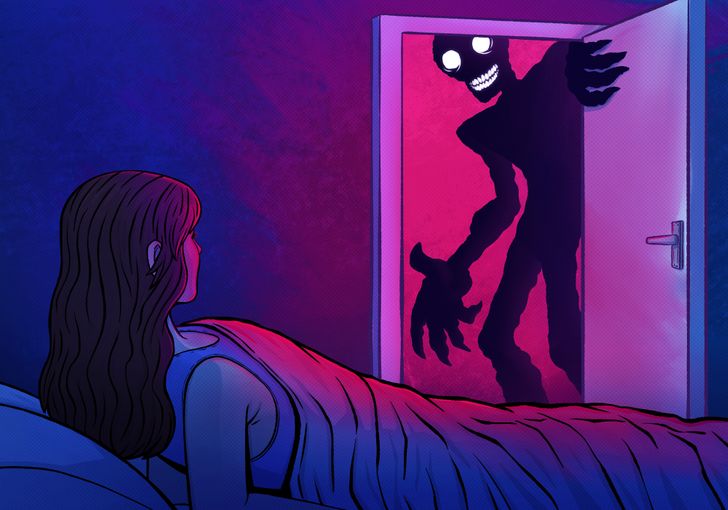Sleep paralysis is a mysterious and often unsettling sleep disorder that has captured the attention of both medical professionals and those who experience its terrifying episodes. In this comprehensive guide, we explore everything you need to know about sleep paralysis—from understanding its fundamental mechanisms and common symptoms to uncovering the underlying causes and effective treatment options. Whether you’re looking to learn about the physiological aspects, such as the disruption of REM sleep and the role of neurotransmitters, or seeking actionable tips to reduce episodes and improve your overall sleep quality, this article is your essential resource.
This surge is driven by an increasing desire to understand not only the eerie experiences of being awake yet paralyzed but also the potential links to stress, anxiety, and other sleep-related conditions. By examining the science behind sleep paralysis alongside practical strategies—such as adjusting sleep positions, managing stress, and establishing a consistent sleep routine—we aim to empower readers with the knowledge needed to tackle this condition head-on.
Drawing on expert insights and reputable external sources like the National Sleep Foundation and the Mayo Clinic, this article provides a detailed look into the phenomenon of sleep paralysis. Our goal is to demystify the condition, reduce the fear associated with its episodes, and offer clear guidance on achieving better sleep health. Whether you’re one of the many individuals who have experienced sleep paralysis firsthand or are simply curious about this intriguing sleep disorder, read on to discover the science, symptoms, and solutions that can help restore restful nights and a more energetic daytime life.
Understanding Sleep Paralysis: What Is It?

Sleep paralysis is a fascinating yet often terrifying sleep disorder characterized by a temporary inability to move or speak while falling asleep or waking up. This condition can occur as an isolated event or in connection with other sleep disorders such as narcolepsy. With rising awareness about sleep health and mental well-being, understanding sleep paralysis is critical for those seeking better sleep hygiene and overall health.
Definition and Overview
Sleep paralysis is defined as a state during which an individual experiences a conscious awareness while the body remains temporarily paralyzed. This paralysis occurs naturally during the rapid eye movement (REM) stage of sleep—a period when the brain is highly active, and dreams are vivid. Typically, the brain disables muscle activity during REM sleep to prevent physical enactment of dreams. However, when the brain and body become out of sync during the transition phases of sleep, the individual may experience a state where they are awake but unable to move.
The Rising Interest in Sleep Health
In recent years, public interest in sleep disorders has grown as people become more aware of the importance of quality sleep. With increasing coverage in media and health blogs, understanding sleep paralysis is now more accessible than ever.
Losing Control Over Your Body: The Paralysis Experience
One of the most distressing features of sleep paralysis is the sudden loss of motor control. Despite the mind being fully alert, the body remains immobilized, creating an overwhelming feeling of helplessness.
The Neurological Mechanism Behind Paralysis
During REM sleep, the brain sends signals to inhibit muscle movement—a protective mechanism that prevents us from physically acting out our dreams. In sleep paralysis, this inhibition persists even as the mind awakens. The resulting condition is not harmful in itself, but the sensation of being trapped in one’s body can cause significant anxiety and distress.
Nightmares and Hallucinations: The Vivid, Scary Experiences

In addition to physical paralysis, sleep paralysis episodes are frequently accompanied by intense hallucinations and nightmares. These sensory disturbances can make the experience exceptionally frightening.
Understanding the Hallucinations
During an episode, many individuals report seeing shadowy figures or feeling a malevolent presence in the room. Auditory hallucinations—such as hearing whispers or loud noises—are also common. Researchers suggest that these hallucinations may be the brain’s attempt to make sense of the discrepancy between wakefulness and REM sleep dreaming.
Psychological Impact and Anxiety
The terrifying nature of these experiences often leads to anxiety, which in turn can worsen sleep quality. The fear of another episode might even lead some to avoid sleep altogether, further impacting mental health. For more insights into the psychological aspects of sleep paralysis, consider reading articles on the National Sleep Foundation website.
Why Does Sleep Paralysis Happen? The Underlying Science
Understanding the root causes of sleep paralysis is key to addressing and managing the condition. Researchers have linked this disorder to disruptions in the sleep cycle, particularly during the transition in and out of REM sleep.
The Role of REM Sleep and Neurotransmitters
REM sleep is the phase when most dreaming occurs, and the body is naturally paralyzed to protect the sleeper from acting out dreams. This paralysis is regulated by neurotransmitters like gamma-aminobutyric acid (GABA) and glycine. If the transition between sleep stages is abrupt or disrupted, these neurotransmitters may not deactivate as they should, leading to a period where the body remains paralyzed even though the mind is awake.
The Connection with Other Sleep Disorders
Sleep paralysis is sometimes associated with other sleep disorders, particularly narcolepsy. Individuals with narcolepsy often experience excessive daytime sleepiness and sudden bouts of muscle weakness (cataplexy), making them more susceptible to episodes of sleep paralysis. For further reading on sleep disorders and REM sleep, the Mayo Clinic offers valuable resources and insights.
Contributing Factors: What Can Lead to Sleep Paralysis?
Various factors can increase the likelihood of experiencing sleep paralysis. Identifying these triggers is the first step toward developing a proactive approach to managing the condition.
Disrupted Sleep Patterns and Sleep Deprivation
One of the primary contributors to sleep paralysis is irregular sleep patterns. Chronic sleep deprivation, inconsistent sleep schedules, and insufficient sleep can all disrupt the delicate balance of sleep cycles. Establishing a regular sleep routine is essential for reducing the occurrence of sleep paralysis episodes.
Stress, Anxiety, and Mental Health
High levels of stress and anxiety have been closely linked to sleep disturbances. Emotional distress can disrupt normal sleep cycles, making it easier for sleep paralysis to occur. Engaging in stress management techniques, such as meditation and deep breathing exercises, may help alleviate these symptoms.
The Impact of Sleeping Positions
Interestingly, the position in which you sleep may also influence the likelihood of experiencing sleep paralysis. Studies indicate that sleeping on your back can increase the chances of an episode. This position may interfere with normal breathing patterns and contribute to the sensation of paralysis. Experimenting with different sleeping positions could be a practical step toward mitigating these episodes.
Lifestyle Factors and Substance Use
Substance use, including the consumption of alcohol and certain medications, can also disrupt sleep patterns. Alcohol, while initially sedative, may interfere with REM sleep, leading to more frequent awakenings and an increased risk of sleep paralysis. Similarly, medications that affect the central nervous system might contribute to abnormal sleep patterns. It is always advisable to consult a healthcare professional if you suspect that a substance or medication is impacting your sleep.
Genetic Predisposition
Emerging research suggests that sleep paralysis may have a genetic component. If you have a family history of sleep disorders, your risk of experiencing sleep paralysis might be higher. Understanding your family’s medical history can provide useful insights for managing and anticipating episodes.
Effective Strategies to Deal with Sleep Paralysis
Managing sleep paralysis involves a combination of lifestyle adjustments, stress reduction techniques, and, in some cases, medical intervention. Here are several strategies that may help reduce the frequency and intensity of episodes.
Establishing a Consistent Sleep Routine
- Set a Regular Sleep Schedule: Go to bed and wake up at the same time every day to help regulate your internal clock.
- Create a Relaxing Sleep Environment: Use blackout curtains, reduce noise, and maintain a comfortable room temperature to promote uninterrupted sleep.
- Limit Screen Time Before Bed: Exposure to blue light from phones and computers can interfere with melatonin production, making it harder to fall asleep.
Stress Reduction and Mental Health Management
- Practice Relaxation Techniques: Methods such as deep breathing, meditation, and progressive muscle relaxation can lower stress levels and prepare the mind for sleep.
- Exercise Regularly: Physical activity during the day can reduce anxiety and improve sleep quality at night.
- Consider Cognitive Behavioral Therapy (CBT): CBT is an evidence-based approach that can help manage anxiety and improve sleep patterns. It’s particularly effective for individuals with chronic sleep disturbances.
Optimizing Sleeping Positions
- Experiment with Sleep Postures: If you are prone to sleep paralysis, try sleeping on your side instead of your back. This small change might reduce the frequency of episodes.
- Use Supportive Pillows: Invest in pillows and mattresses that support your body’s natural alignment, reducing the chance of experiencing discomfort during sleep.
Limiting Alcohol and Certain Medications
- Reduce Alcohol Consumption: Alcohol can disrupt the natural progression of sleep stages, so limiting intake—especially before bedtime—can be beneficial.
- Consult Healthcare Providers: If you suspect your medication is interfering with your sleep, speak with your doctor. There may be alternative treatments or dosages that can minimize sleep disruptions.
When to Seek Professional Help
If sleep paralysis episodes become frequent or severely impact your daily life, it’s important to consult a sleep specialist or healthcare professional. A comprehensive sleep study may be recommended to determine if an underlying condition, such as narcolepsy, is present. Professional guidance can lead to a more tailored treatment plan, which might include medication or therapy to address the root causes of the disorder.
Taking Charge: Improving Overall Sleep Health
Understanding sleep paralysis and its underlying mechanisms is just one part of the equation. Achieving overall sleep health requires a comprehensive approach that considers both physical and mental well-being.
The Importance of Sleep Hygiene
Good sleep hygiene involves creating an environment and routine that promote restorative sleep. This includes:
- Regular Exercise: Engaging in physical activity helps reduce stress and improve sleep quality.
- Balanced Diet: Nutrition plays a role in sleep regulation. Avoid heavy meals before bedtime and consider incorporating foods rich in magnesium and tryptophan.
- Mindfulness and Relaxation: Practices such as yoga and meditation not only improve mental health but also contribute to better sleep.
For additional tips on improving sleep hygiene, resources like the Sleep Research Society offer evidence-based advice and strategies.
Technological Aids for Better Sleep
In today’s digital age, various tools and apps are available to monitor and improve sleep quality. From wearable fitness trackers that monitor sleep cycles to apps that offer guided meditation sessions, technology can be a valuable ally in your quest for better sleep.
Conclusion: Empowering Yourself Against Sleep Paralysis
Sleep paralysis, though often frightening, is a manageable condition with the right approach. By understanding its causes—from disrupted REM sleep to external lifestyle factors—you can take proactive steps to reduce the frequency and intensity of episodes. Maintaining a consistent sleep schedule, adopting stress reduction techniques, optimizing your sleeping position, and seeking professional help when necessary are all essential strategies to overcome this sleep disorder.
For those looking to dive deeper into the science behind sleep paralysis and other sleep disorders, reputable sources like the American Academy of Sleep Medicine provide extensive research and guidance. Whether you are seeking immediate relief or long-term solutions, taking control of your sleep health is the first step toward a better, more restful life.
Incorporating these practical tips into your daily routine not only helps manage sleep paralysis but also improves overall sleep quality and mental well-being. Remember, every small change can lead to significant improvements in your health. With persistence, you can overcome sleep paralysis and enjoy the benefits of restorative, high-quality sleep.









Leave a Reply